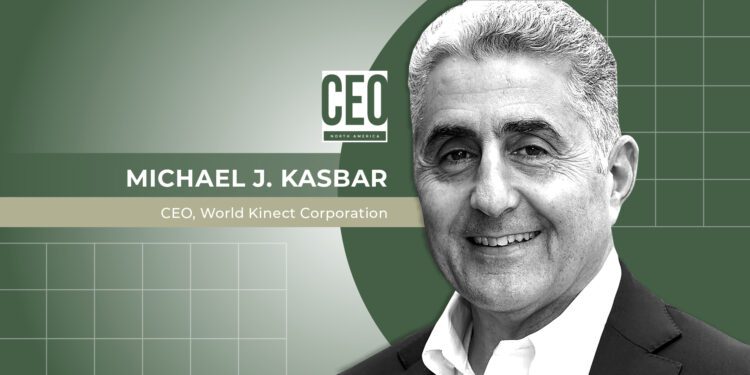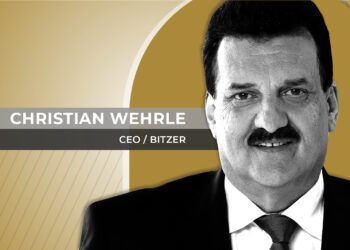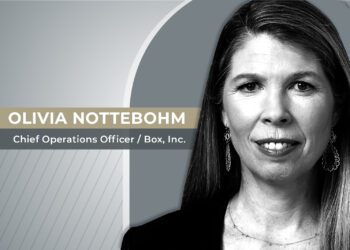

Business Executives: Michael J. Kasbar
CEO / World Kinect Corporation
As Leonardo DaVinci once said, “Everything connects to everything else,” but sometimes those connections can be tricky and convoluted, which is why having a professional bridge that facilitates efficient, reliable, affordable connections is the key to a successful business. That’s what World Kinect Corporation is all about.
It all started back in 1984 with a phone, a folding card table and two guys cramped in a harborside office in New York City, making sure that vessel operators in need of marine bunker fuel were successfully connected with the people who had it readily available.
Fast-forward nearly four decades later, and World Kinect Corporation (formerly known as World Fuel Services Corporation) is still connecting people in need of energy with dependable providers, but on a much larger scale.
And with more than 160,000 customers that operate fleets and facilities across 200 countries and territories, World Kinect Corporation today has grown well beyond just providing fuel to marine tankers.
World Kinect Corporation Services: Executive Interview to Michael J. Kasbar
It is now a holistic and integral part of its customers’ entire energy journey, helping its clients to not only access fuel, but also providing energy management, fulfillment, logistics and payment services.
“What we do is provide a complete energy management solution for land, air and sea transport,” explained World Kinect Corporation CEO Michael J. Kasbar, who happened to be one of those two guys in the crowded office back in 1984.
“There really isn’t anybody in the market that does what we do. There’s lots of people doing pieces of what we’re doing, but there isn’t anybody that does what we do as broadly in terms of the marketing and geography and breadth of services.”
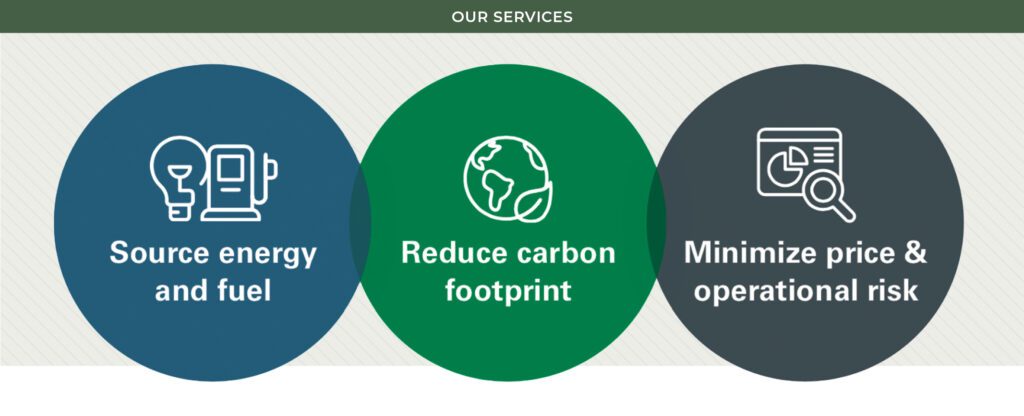

“When you look at the size of the marketplace today, it’s quite large in terms of aviation and marine. More than 80 percent of the world’s goods travel and get transported through the marine industry, and that’s not likely to change anytime soon, so it’s an important and critical part of global commerce.”
As for aviation transport, Kasbar said that the global market is continuing to expand at a rate of about 3.5 percent per annum, with expectations that demand will double by the year 2040.
“Then when we look at what we call our land segment – ground-based fueling, either for fleets, commercial or industrial users of energy – that’s also a sizeable market,” he said.
Interview with CEO Michael J. Kasbar: World Kinect Corporation’s Partners
Working with critical and dependable partners like Neste, which offers sustainable aviation fuel that can save clients up to 80 percent over the cost of traditional fossil fuels, Phillips 66, a top-quality provider of premium gasoline and other refined petroleum products, and BP, one of the world’s largest oil and gas “supermajors,” Global Kinect tailors its services to meet the specific needs of each of its clients.
“You would have thought that putting fuel on a ship or plane, or delivering it to a factory would be fairly straightforward, but there’s a lot of moving parts. It’s the combination of having perfected that process over decades that allows us to do it in a very efficient and precise way.”
“Like Neste, BP and Phillips 66 are two of our critical, long-term supply partners across several of our businesses,” Kasbar said. “We are excited for continued, successful partnerships with all three of these industry leaders.”
Kasbar said that most of World Kinect Corporation’s clients – be they airlines, shipping companies, commercial industrial users or governmental entities – have as their core competency the objective of moving goods or people from one place to another.
And in order to do that, they must procure energy, which is where World Kinect Corporation comes into play.
“The energy market is complicated,” Kasbar said. “It’s volatile, the quality of the product is variable, and while we think of energy in global terms, it’s actually quite local, and everything impacts it.”
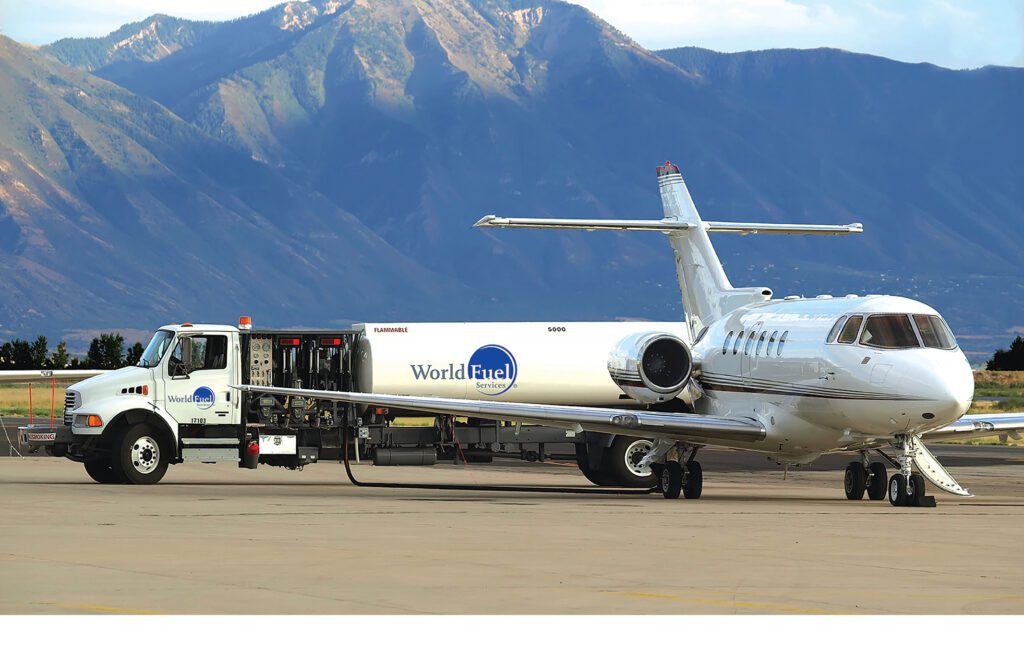

Consequently, he said, energy buyers must factor in a number of variables, including price, availability and decarbonization in terms of sustainability objectives.
Since most corporations are not experts in either energy procurement or logistics, Kasbar said that they have to grapple with what he called “the trilemma of energy affordability, energy availability and the resilience of supply.”
“We’ve seen by virtue of the invasion of Ukraine how politics can disrupt markets, and we’ve seen refinery outages and natural events like hurricanes seem to be more prevalent,” he said.
“So the actual availability of the product is not assured, and, of course, price is pretty important. It’s critical for operations of airlines and shipping companies. It can be up to 30 percent of their operating costs.”


Moreover, he said, the entire global energy market is currently in flux.
“Renewable energy is now a material part of the supply picture, from onsite solar and renewable diesel to biofuels and sustainable power. All these sources of energy are a part of the repertoire of almost every company today,” Kasbar said. World Kinect Corporation offers its customers access to both conventional and renewable energy sourcing and provides them with the critical data they need to comply with their respective sustainability goals.
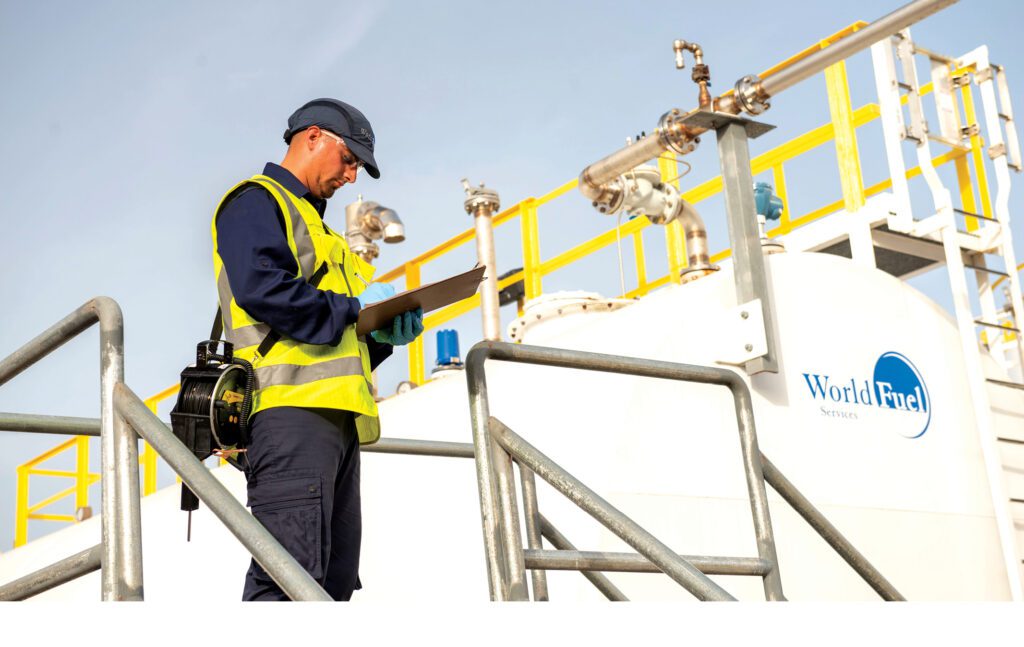

“We’ve been doing this for decades, and we are a strategic partner for all of those consumers of energy to achieve both their sustainability and financial objectives,” Kasbar said.
And despite complications from the aftermath of the Covid-19 pandemic and supply-chain breakdowns around the globe, 2022 was a milestone year for World Kinect Corporation.
“We delivered solid performances in every one of our businesses,” Kasbar said, pointing to total revenues of $59 billion.
“The year 2022 also capped a three-year journey where during that time period our business and our team responded to the sudden and near total shutdown of aviation and marine passenger travel, the abrupt end of our military business activity in Afghanistan, and the impact of the Ukraine invasion on global oil markets, which negatively impacted our aviation inventory model.
“We are an energy management, fulfillment, logistics and payment business. We help users manage their procurement of energy. Whether it’s a shipping company, an airline, a fleet of trucks or a commercial, industrial or governmental entity, we help them use less of it, get the right fuel at the right time at the right place and the right price with the right logistics.”
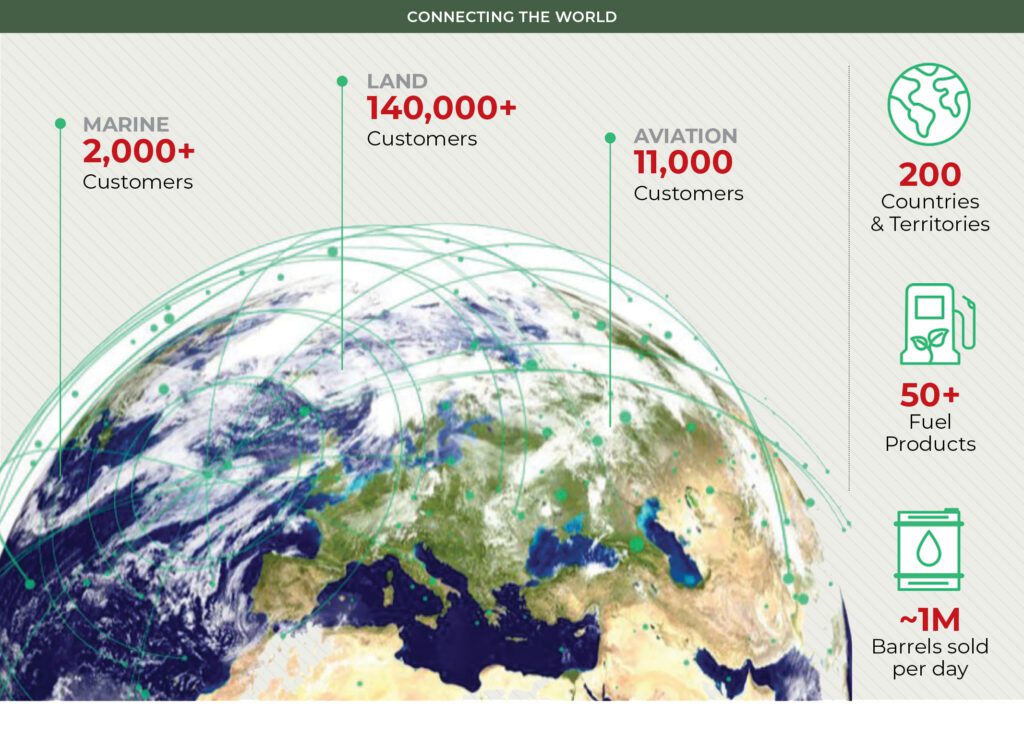

And despite all of this, in 2022 we rebounded back to nearly match our record 2019 operating results. If 2022 said anything about our company, it is that our portfolio diversity breeds stability and stability breeds resilience, especially in the face of adversity.”
World Kinect Corporation also delivered solid results in the first half of 2023. Its first quarter 2023 adjusted EBITDA increased year-over-year by 16 percent to $87 million, and its second quarter 2023 adjusted EBITDA increased year-over-year by 29 percent to $99 million.
CEO Interview: Michael J. Kasbar on World Kinect Corporation’s Goals
Having successfully built global platforms for both air and sea transport, Kasbar said that World Kinect Corporation is now looking to reinforce its land-based and sustainability businesses.
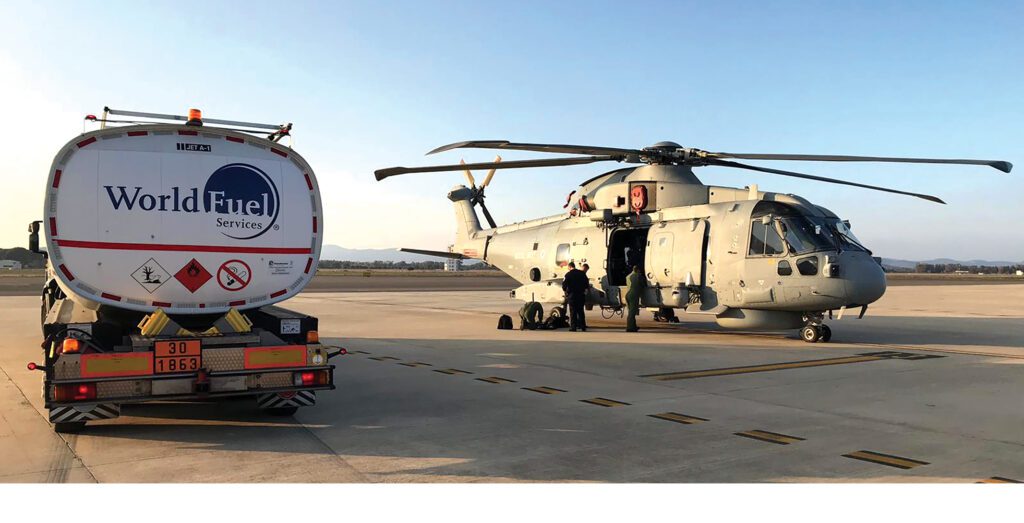

“As military veterans have made sacrifices in the tireless service of their country, so World Kinect Corporation will proudly support them on their transition to civilian life and in finding employment. Veterans are talented and committed and we share and value their passion for excellence in service.”


“These are younger businesses for us, but there’s a lot of similarities with our land and sea competencies and processes, and even technology platforms, that we’ve been able to leverage into our land and sustainability businesses, because at the end of the day, while the energy diet is becoming more diverse, there is a commonality cutting across all businesses where they’re looking to source renewable power, onsite solar, any number of different activities,” he said.
“And looking at the need for energy efficiency, a big part of achievement of sustainability goals is going to come from energy efficiency. With the technology that exists today, most companies will be able to get halfway through their sustainability targets by looking at efficiency efforts, and we provide a lot of that across all our businesses in terms of consulting for those companies.”
By the same token, Kasbar said that most energy suppliers are more focused on exploration, production, development and sustainability than on seeking out new customers.
“Wherever we can get reusable processes or tools, we’ll do that in order to create improved efficiencies, which are vital to sustainability goals.”


“While both our customers and our suppliers are focused on their core competencies, we’re focused on bridging between buyers and sellers, between producers and consumers,” he said.
And it is exactly that ability to connect energy buyers and suppliers that inspired the company to change its name and rebrand itself in June of this year.
“For nearly 40 years we have been dedicated to providing a comprehensive and reliable supply of energy, logistics and finance solutions for aviation, marine and land-based customers worldwide,” Kasbar said.
“Our new name, World Kinect, represents our role as a bridge, connecting our customers to the resources, expertise and support they need to successfully navigate their energy transition journeys.”


Find more executives interviews in CEO North America



